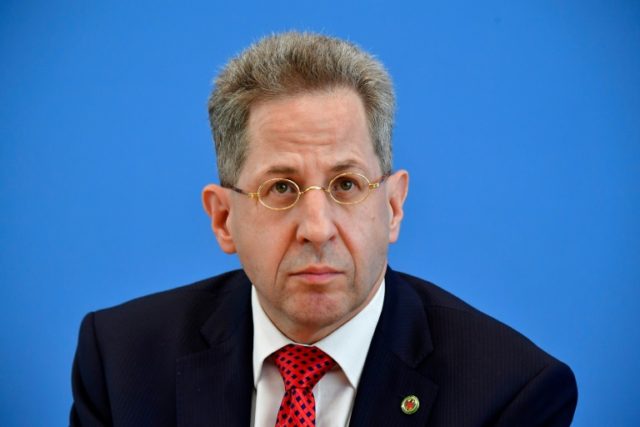Berlin (AFP) – Chancellor Angela Merkel and her two coalition allies Sunday reached an agreement to resolve a festering row centred on Germany’s outgoing domestic spy chief, said Interior Minister Horst Seehofer.
They agreed that Hans-Georg Maassen, 55, who leaves the post as chief of the BfV domestic security agency, be appointed special representative for internal security in the interior ministry, Seehofer said.
Crucially, the new job does not come with a raise in pay or status, after an earlier proposal to give Maassen the more senior post of state secretary had sparked a public outcry.
The dispute centres on controversial comments by Maassen that played down the severity of far-right racist mob violence in the eastern city of Chemnitz last month.
Merkel’s junior parters, the centre-left Social Democrats (SPD), then strongly pushed for Maassen to be fired, while hardline minister Seehofer of the conservative Bavarian CSU had defended the spy master.
A shaky compromise deal reached last Tuesday — to shift Maassen to the more senior and better paid state secretary post — sparked even more anger and ridicule and heightened pressure on SPD party chief Andrea Nahles.
With the scandal entering a second round, the three leaders met Sunday to revisit and seek to resolve the tricky issue.
Seehofer, long Merkel’s most vocal critic on immigration, had insisted early Sunday that he would not leave Maassen without a post.
“There will be no gathering without a previous scenario for a solution that all stakeholders will abide by in the future,” he told Bild am Sonntag newspaper.
The dispute rocking the government of the EU’s top economy has bordered on political farce and, observers said, showed the weakness of Merkel as the leader of a loveless three-party alliance she had to cobble together for her fourth term.
An Emnid poll for Bild on Sunday found that 67 percent of respondents no longer believed the three party chiefs still shared a common basis of trust, although a narrow majority also rejected the options of new elections now.

COMMENTS
Please let us know if you're having issues with commenting.